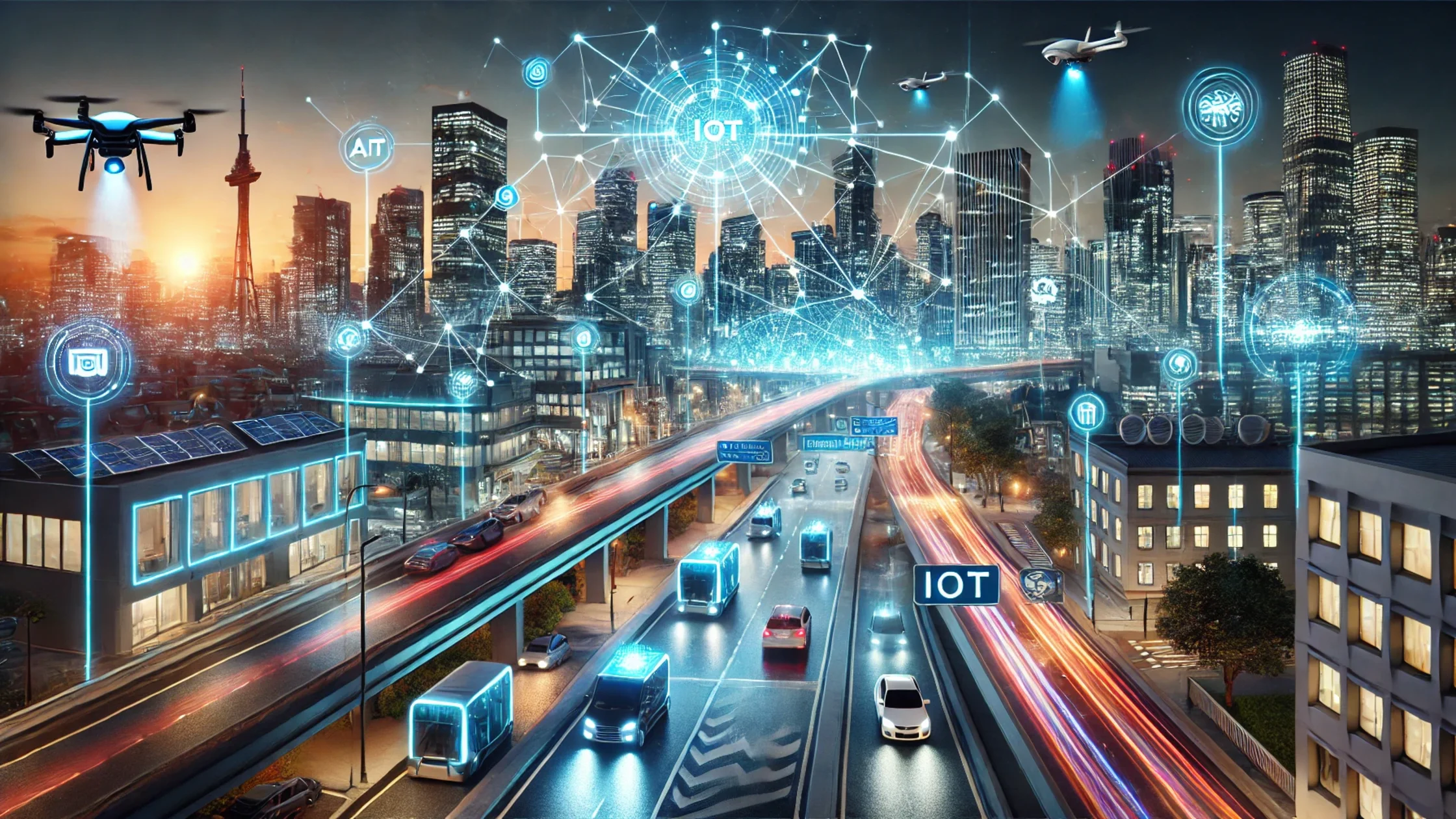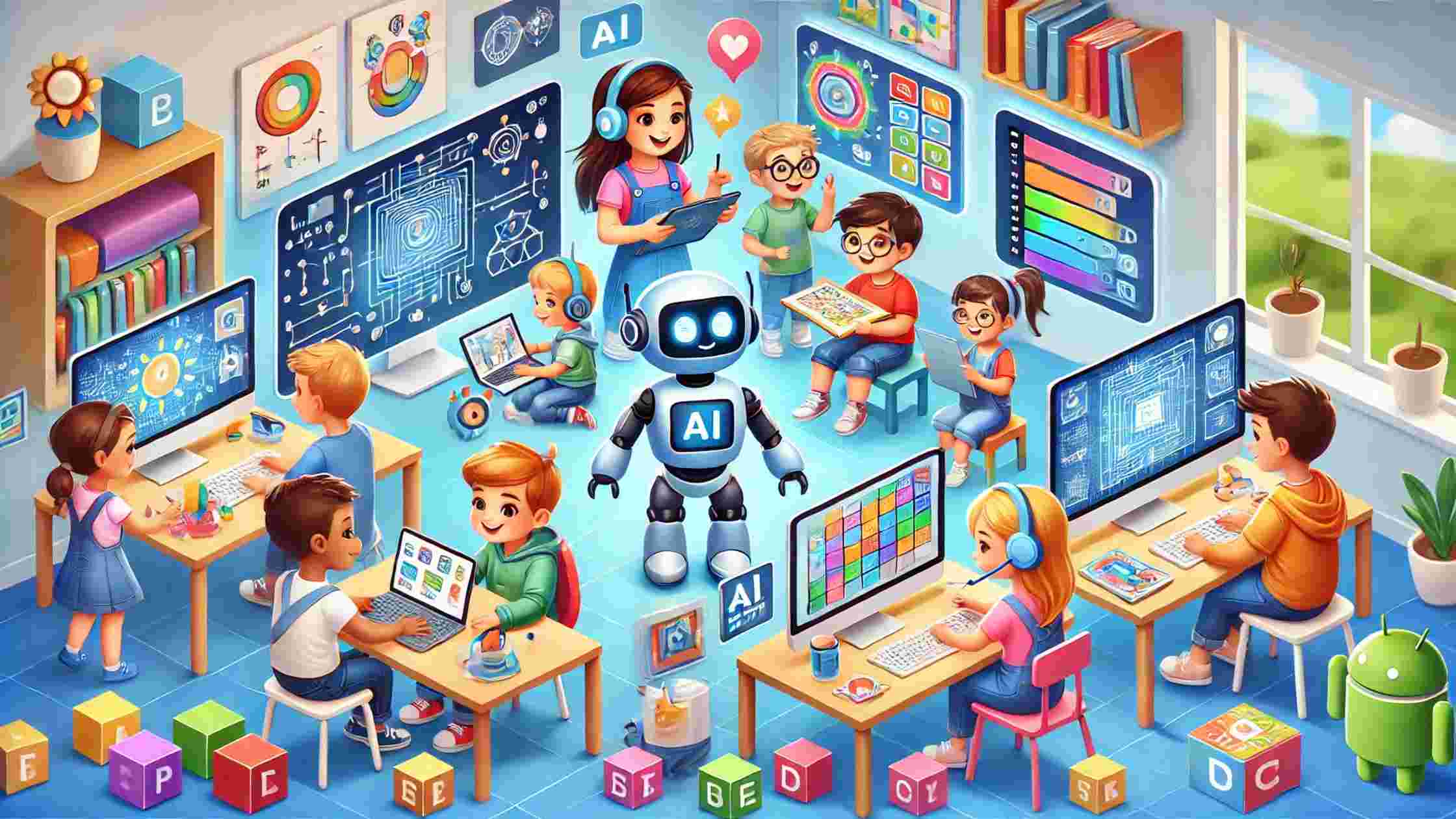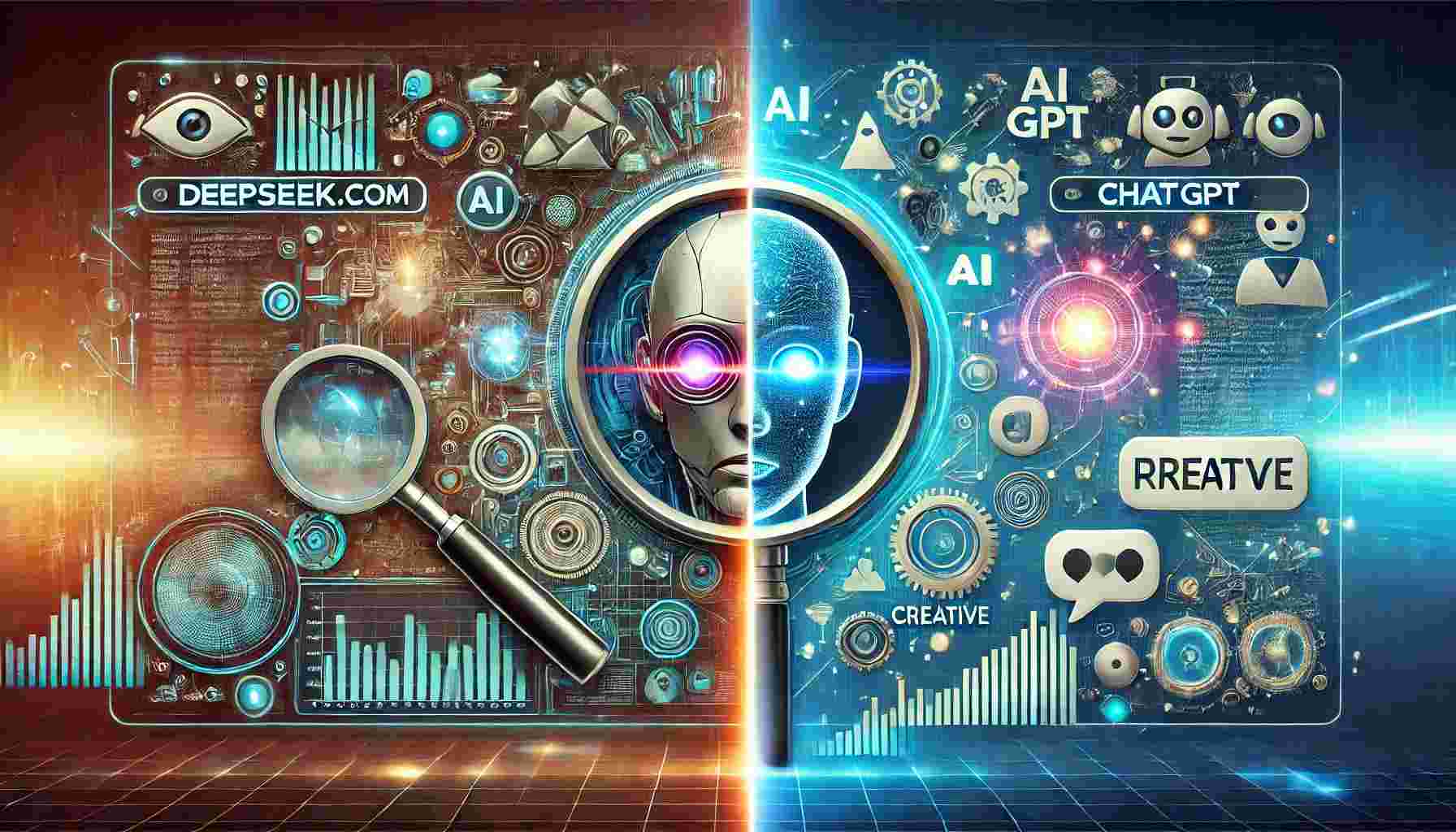It’s a time of change across the world, where technology evolves in all manners concerning smart cities and the Internet of Things, putting life at different levels of engagement every day. Artificial Intelligence leads in these directions of advancement, with its agents affecting changes in both cities and interaction with devices. In this blog, we explore in detail how it affects smart cities and the Internet of Things.
Covered Contents
ToggleWhat are AI Agents?
AI agents are designed as computer programs that perform tasks or make decisions independently. Using machine learning, deep learning, and other forms of AI, these agents can learn from data and improve performance over time. They can accomplish specific functions like optimizing traffic flow, managing energy use, or even helping healthcare. In smart cities and IoT, AI agents work behind the scenes to make systems more efficient and responsive.
For More Explanation: What are AI Agents and How Do They Work?
AI Agents in Smart Cities
Smart cities are municipalities that use advanced digital technology to help improve their dwellers’ lifestyles. Their basis for creating data is collected through IoT equipment, such as sensors, cameras, and other connected vehicles, which are sent to a control center for the processing and analytics of city service optimization. However, AI agents are crucial in making sense of this much data and giving real-time recommendations.
Traffic Management
One of the most visible applications of AI in smart cities is traffic management. AI agents reduce congestion and improve the flow of traffic. AI agents predict traffic patterns based on data from cameras, sensors, and GPS devices and adjust traffic lights based on the pattern. This decreases waiting times at intersections and minimizes or prevents traffic jams. Furthermore, AI can help redirect traffic when accidents happen or construction occurs, thus giving a smoother ride to everyone.
Energy Management
Energy consumption is a major concern in cities. AI agents can help manage energy use more efficiently. In smart cities, AI can monitor energy usage in real-time, detect inefficiencies, and suggest improvements. For instance, AI agents can control street lighting systems, dimming lights when no one is around or adjusting them based on weather conditions. This reduces energy waste and lowers the city’s overall carbon footprint.
Public Safety
AI agents are also enhancing public safety in smart cities. AI-driven surveillance cameras can capture unusual activity such as a person lingering in a restricted area or a vehicle going the wrong way. AI agents can immediately send alerts to authorities, which makes it easier to respond to any possible threats earlier. In addition, AI agents can predict patterns of crime using historical data; hence, they allow law enforcement to deploy more effectively.
Waste Management
Artificial intelligence is transforming waste management in smart cities. Sensors located inside waste bins can alert the collections teams when bins are full. AI agents can process the sensor data for the best routes and schedules in the collection. This results in more efficient management of waste by consuming less fuel and reducing labor costs. Additionally, AI can facilitate areas with low recycling rates, encouraging better waste segregation practices.
The Internet of Things and AI Agents
Interconnected devices that exchange data and communicate with one another are referred to as the Internet of Things (IoT). Everything from smart refrigerators and industrial sensors to wearable fitness trackers and smart thermostats might fall under this category. The brains of many of these devices are AI agents, which enable them to learn from data and make more intelligent judgments.
Smart Homes
AI agents are transforming the way we live in our homes. Smart home devices, such as thermostats, lighting systems, and security cameras, can be controlled via voice commands or mobile apps. AI agents make these devices even smarter by learning your preferences over time. For instance, an AI-driven smart thermostat can keep your house at a comfortable temperature while concurrently optimizing energy use. Another example is when an AI agent is monitoring through security cameras to alert a homeowner to some possibly suspicious activity.
Health and Wearables
AI is personalizing health care. For instance, wearable devices, such as fitness trackers, monitor heart rate and several steps a person takes. These devices gather data that the AI agents analyze to give the wearer health advice. For instance, if there is an abnormal heart pattern recorded by a wearable device, then it can inform the wearer to visit a medical facility. AI agents can be integrated into health care systems to aid doctors in disease diagnosis more precisely or monitor patients’ progress in real-time.
Agriculture and IoT
The sensors monitoring soil moisture, temperature, and crop health can be improved in agriculture with IoT-enabled sensors, and AI agents analyze the data from these sensors to provide the farmer with actionable insights. AI can recommend optimal time for watering crops or fertilizer application, hence improving yields while reducing waste, and AI agents can help farmers detect pests or diseases early enough, allowing preventive measures before they spread.
Intelligent Transportation Systems
AI agents also play a key role in intelligent transportation systems. In addition to controlling the traffic flow in urban areas, AI optimizes public transportation routes. Buses, trains, and even ride-sharing services use AI to predict the probability of passenger boarding and alter their schedules to maximize the chance of picking up passengers. For instance, if an AI finds more passengers suddenly present at a stop, it is likely to route an extra bus or train according to the demand increase. AI systems in logistics also offer better efficiency: they can foretell the actual time of delivering goods and allow trucks to cover routes more reasonably.
More About This: The Future of IoT: Transforming Everyday Life with Smart Devices
Benefits AI Agents Provide Smart Cities and IoT
AI agents have various implications for both smart cities and the Internet of Things, which include a few significant ones as mentioned:
Increased Efficiency
AI agents make systems smarter and more efficient. In a smart city, AI can analyze data in real-time and make decisions faster than humans ever could. This leads to improved services, reduced waste, and optimized resource use.
Cost Savings
AI agents automate many processes, reducing the need for human intervention. This can save time by reducing costs in areas such as traffic management, energy usage, and waste collection. In addition, smart AI-based systems are more effective in predicting and preventing problems, saving money in the long run.
Improved Quality of Life
AI agents improve the quality of life of smart cities’ citizens. By improving traffic conditions, improving air quality, and improving safety standards in public places, AI would lead to better living and sustainability in people’s homes. Devices in homes improve day-to-day tasks through AI.
Sustainability
AI agent-powered smart cities are much more sustainable. By optimizing energy consumption, waste disposal, and utilization of available resources, AI fosters a greener future. AI also minimizes the use of pesticides and fertilizers in agriculture.
Read More: What Are the Benefits of Using Wearable IoT Technology?
Challenges in Implementing AI in Smart Cities and IoT
The various challenges facing AI in smart cities and IoT are discussed below. Data privacy is the first challenge. A large number of devices collect personal data, so the need to protect that data arises. Then there is integration. Many cities are using various systems that don’t necessarily interact with one another, which creates an added difficulty for the application of AI across platforms.
Conclusion
AI agents play a transformative role in smart cities and IoT. AI-based management of traffic and energy usage, improvement of public safety, and enhancement of health have transformed urban life into efficiency, sustainability, and comfort. As the advancement of AI technology continues to soar, expectations will certainly rise further for the lives and interactions that individuals will make with their surroundings. Indeed, the future for smart cities and IoT is bright and promising, as are the prospects being led by AI agents.




One thought on “How do AI Agents transform Smart Cities and IOT?”